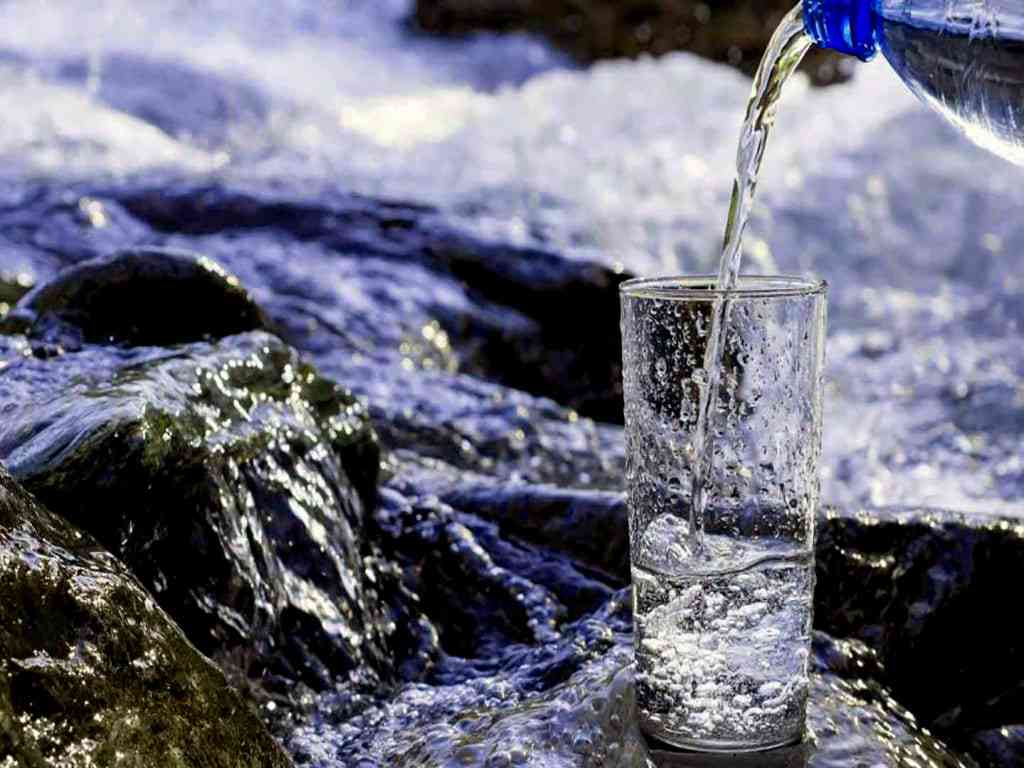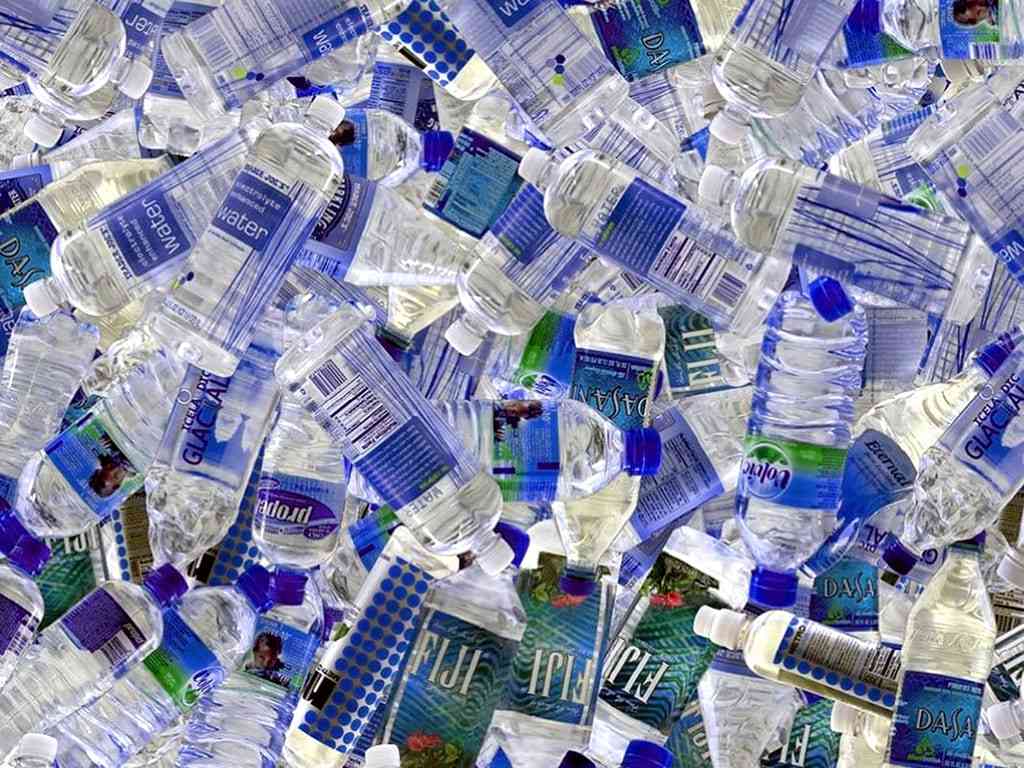Filtered local tap water or well water is what we consider the best water to drink. While it’s true tap water can be polluted, tap water in the US is generally pretty comparable to bottled water, and the reporting of test results is much more transparent. There are varying levels of safety across the US, however, as there are thousands of different water providers and not all of them are top notch. You can check out information we’ve found on the safety of your local water by using the search bar above.
Filtered Tap Water is Best
While tap water in the US generally won’t get you sick, depending on locality there can be trace amounts of chemicals and bacteria that can cause issues for certain groups. Children, pregnant women, and people with weakened immune systems can be particularly sensitive to small amounts of contaminants. Chemicals like lead and PFAS (“forever chemicals”), can get into water and slowly build up over time. So while one unfiltered glass of tap water below the EPA maximum 15 parts of lead per billion isn’t going to kill you, it’s still better to filter it.
Bottled Water can also be a Good Choice
Bottled water can be a great alternative if you can’t trust the local water supply, but it’s often no better than tap water- in fact, there are a lot of cases where it is just tap water from another place! Bottled water made with cheap plastics can also have issues with plastics and chemicals leaching into the water - definitely something you don’t want. Bottled water also sees some of the same issues as tap, with PFAS being found in many bottled water brands. Additionally - bottled water companies don’t have to publicly disclose their test results the way tap water companies do so we don’t know exactly what is in them. If none of that is a motivating factor for you, then consider that you’re paying to pollute. Bottled water can be 100X more expensive than tap and a huge contributor to plastic waste around the globe!
All of the above said - not bottled waters are created equal.
Disclosure - Some of the products below (LARQ & Path Water) are programs we receive affiliate commissions from if you use the below links (at no cost to you). We do this to help pay for the costs of operating this website. For both of these products, we made the decision to include them on this page before we started to earn commission, so the commissions did not impact our decision to add them to the page.
Safest Water Bottles
- Grayl - These water bottles are awesome. They’re made to be used in rivers and streams while hiking, with no electricity. Just dump any old water in and push it through the filter and you’ve got clean water like magic!
- Larq - While these water bottles don’t have the same filtering ability as Grayl - they do something just as awesome. Larq water bottles use UV light reflected inside the bottle to kill bacteria in the water and clean the bottle!
- Stainless Steel- The best bang for your buck, stainless steel water bottles don’t leach any toxic chemicals and don’t require a liner on the inside. Mirr does a great job with their bottles. https://www.miir.com/collections/bottles
- Glass Water Bottles - Simply put glass water bottles don’t leach any toxic chemicals and are the most environmentally friendly. The downside here is that though there are break resistant, glass water bottles can still break. We think the Atlas Glass water bottle by Zulu is a great example of a glass bottle that is break resistant & protected by a silicone sleeve. https://www.zuluathletic.com/shop-all/atlas-glass-water-bottle
- Honorable mention: Anything but disposable! - Aluminum or Nalgene are better alternatives, though both have some drawbacks in terms of possible chemical leaching, but they are reusable and therefore don’t create as much waste!
Drinking Water
Different types of drinking water could be more or less beneficial than other counterparts. Major water types have different properties of content and benefits on our overall health. The main goal of each class is to keep us hydrated. You might be interested in which of these can serve you best on your health needs.
According to reports, no type of water can promise more significant benefits than the other. You can always drink whichever, and as long as it's safe and clean. Safety, fresh and comfortable with the tastes would be the best choice.

- Tap Water
- Well Water
- Spring Water
- Purified Water
- Mineral Water
- Sparkling Water
- Infused water
- Distilled Water
- Alkaline Water
Safest Bottled Water
Since safe drinking water not accessible to some locations, people shift to bottled water. Everyone needs to know which bottled water is safe for them to consume.

People think plastic bottled water is bad for your health. It's not that much. Bottles release a small amount of chemical to the water inside; this amount is theoretically not harmful to health. According to experts, high temperatures can cause hazardous plastic antimony. You should always keep your bottled water under the shade. We are unaware of what condition was kept before to get it from the stores.
The safe bottled water depends on its condition. Assorted bottled water have different mineral content and went through a various procedure or fresh from springs. One of the best parameter to check is the optimal pH level. (between 6.5 - 8.5)
Best Bottled Waters to Drink:
- Fiji - owned by The Wonderful Company. Artesian water that came from deep underground reserves. This brand is pricier than typical bottled water but one of the safest drinking water.
- Evian - owned by French multinational corporation. This brand meets all regulations and safe bottled water standards.
- Nestlé Pure Life - owned by Nestlé. Springwater that's loaded in minerals. Cleaned and examined under strict restrictions and safe to drink.
- Alkaline Water 88 - added Himalayan salt that contains a small amount of iron, zinc, calcium, and potassium.
- Glaceau Smart Water - not better than your tap water; however, it's purified and has added minerals. Coca-Cola owned this brand.
Path Water - We also want to throw out an honorable mention for Path Water who is using refillable aluminum water bottles with filtered water to cut down on plastic waste. With all the plastic filling landfills today, we think it's awesome that they're trying to go a more eco-friendly, reusable route.
Path Water - We also want to throw out an honorable mention for Path Water who is using refillable aluminum water bottles with filtered water to cut down on plastic waste. With all the plastic filling landfills today, we think it's awesome that they're trying to go a more eco-friendly, reusable route.
We've also written pages for these bottled waters:
For more info on these waters, please click the links above to go to their specific page.
Benefits of Drinking Water
- Weight loss
Several pieces of research show that drinking enough water can help you lose weight. Drinking water improves your metabolism, clean your body of waste, and acts as an appetite suppressant. Water can also increase calorie burning.
- Lubricates the joints
Synovial fluid that instantly lubricates your joints is made up of water.
- Forms saliva and mucus
Saliva made of 98% of water.
- Delivers oxygen throughout the body
Body fluids transport oxygen and nutrients to the cells.
- Boosts skin health and beauty
Drinking water will help get rid of skin toxins and hydrates your skin to moisture.
- Cushions the brain, spinal cord, and other sensitive tissues
Maintaining hydrated defends your brain, spinal cord, and other sensitive tissues.
- Regulates body temperature
Our body uses water to sweat, urinate, and have bowel movements. Through perspiration, the body temperature regulates in warm temperatures. We are taking water to replenish the lost fluid from sweat.
- The digestive system depends on it
Consuming water during or after a meal aids digestion. Water and other liquids improve the break down of food so that your body can absorb the nutrients. It also softens stool, which helps prevent constipation.
- Flushes body waste
It rinses toxins and waste from the body and carries nutrients to where they are needed.
- Helps maintain blood pressure
When you don’t drink sufficient water, your body tries to secure its fluid supply by maintaining sodium. Sodium is your body’s water-insurance mechanism. Dehydration pushes your body to slowly and orderly close down some of its capillary beds. When some capillary beds shut down, it puts more pressure in the “pipes”—your capillaries and arteries—elevating your blood pressure.
- Airways need it
Water helps to dilute the mucus lining your airways and lungs.
- Makes minerals and nutrients accessible
It assists dissolving minerals and nutrients, making them more available to the body.
- Prevents kidney damage
Clean water supports the kidneys to remove wastes from your blood in the form of urine.
- Reduces the chance of a hangover
Although dehydration is not recognized as a primary cause of hangovers, it may contribute to symptoms like thirst, headache, fatigue, and dry mouth.